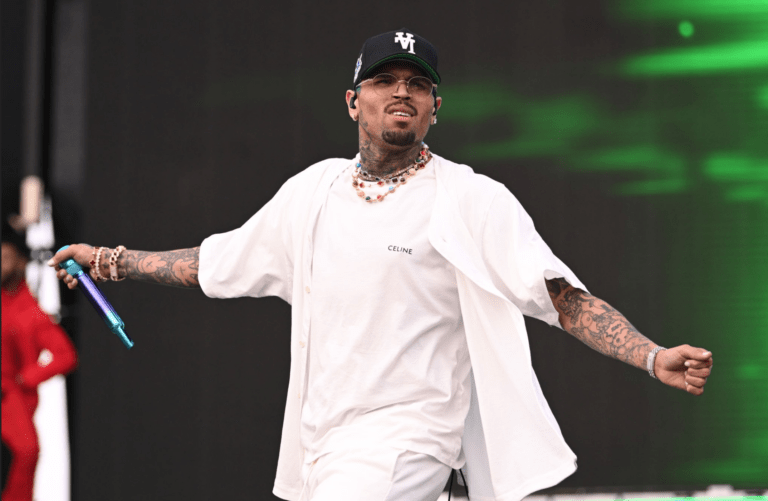Several stages of blood claat

There was literally a bloodclaat dancehall song during the Dave Kelly tribute on the second night of this year’s Reggae Sumfest festival in Montego Bay, St James. Performed by Bounty Killer and Cham, in terms of time it was the odd song out on a multi-artiste tribute that focused heavily on the 1990s and had a touch of the early 2000s. That was the period when Kelly’s Madhouse label was a hit factory (and dancehall fans went crazy at the Asylum nightclub in New Kingston). However, “Bloodclaat” is a 2022 song which questions the intensity of response to Jamaica’s myriad social ills and recommends “mek we cuss bloodclaat, pure tings a happen an nobody nah talk”.
This “Bloodclaat” song by Bounty Killer and Baby Cham, produced by Dave Kelly, may not be a solution to the myriad problems it speaks about, but it is an appropriate vocal response from those who rely on the power of their voices, delivering an emphatic claat when necessary.
Bloodclaat is one of the quartet of Jamaican words used to express intense emotion, from rage to tranquility, hatred to love, despair to hope, sorrow to delight, satisfaction to distress, the innumerable intended meanings and interpretation based on the speaker’s tone and the particular context. The other three are raasclaat, bomboclaat and pussyclaat, the four often used in various permutations and sometimes with the ‘claat’ (especially raas). Although widely used by Jamaicans in varied circumstances and revelled in by many non-Jamaicans, under the law they are an offence. The Towns and Communities Act of 1843 states in subsection l that no person, “Shall sell or distribute, or offer for sale or distribution, or shall mark on any fence, wall or any building, any obscene figure, drawing, painting, or representation, or sing any profane, indecent or obscene song or ballad, or write or draw any indecent or obscene word, figure, or representation, or use any profane, indecent or obscene language.
Under subsection (m), no person: “Shall use any threatening, or abusive and calumnious language to any other person publicly, as shall tend to provoke a breach of the peace; or shall use such language, accompanied by such behaviour to any person publicly as shall tend to a breach of the peace.
While the Jamaican quartet of claats is not specified, that is where this colonial law (enacted only five years after full emancipation in 1838) has been most notably applied, albeit haphazardly. And it is in music performance that the encounters between law and language have been most publicly fractious. Peter Tosh’s ‘Oh Bombo Klaat’ (as it is spelt on one version of the 45 rpm which I saw online, with another having a change of vowel to read ‘Oh Bumbo Klaat’) stands out. So does his speech at the 1978 One Love Peace Concert where Tosh adroitly skirted a few claats with adjustments like ‘Rasta Castle’, then eventually said ‘raasclaat’ outright – once. In the early to mid-2000s, there was an spike in performers being charged for using Jamaican curse words on stage, including Sumfest. Alozade went to court for language, which would attract a fine or confinement, and ended up having a courtroom brawl with police officers and serving time behind bars. At Reggae Sunsplash 2006, Bounty Killer said on stage “me cuss more dan 3.5 million bad wud in Jamaica already and I only been charged twice”. In the 1990s Cham did ‘Que Se Ra”, with the refrain including “que se ra, bumper cyart” and audiences inevitably making the very short step to shout “kiss mi raas, bomboclaat”. It was also a Dave Kelly production and, as the producer has worked extensively with both Bounty Killer and Cham, ‘Bloodclaat’ blooms from familiar soil. Even parts the innocuous refrain of the Folkes Brothers pre-Independence ‘Oh Carolina’ has been converted to Jamaican claats by audiences, perhaps more so with Shaggy’s 1990s remake.
There were no legal repercussions for Baby Cham and Bounty Killer after Reggae Sumfest 2022, or statements by the organisers. Curiously, on the festival’s previous night Exodus sound system had been booted from the Global Sound Clash because of expletives, while eventual runner-up Warrior Sound was reinstated after an apology for curse words. It was just one more example of the consistent inequities in consequences arising from use of claats.
And, there is another imbalance, this in legal stipulation which is already skewed. In July this year a man who was charged for using indecent language at the Norman Manley International Airport in Kingston. Normally the fine is $2,000 or confinement, but even the judge was amazed to find out that indecent language at the airport attracts a $50,000 fine. Eventually, the judgement was $5,000 or 15 days in jail.
But the claats seem to be rather attractive to some foreigners, including a man I met in a mall in New Orleans, USA, in 2016. He heard my accent, perked up, verified I was Jamaican and requested that I say ‘bomboclaat’. Eager to maintain harmonious relationships between our nations, I did, with no fear of being fined or confined.
Mel Cooke covered Jamaican entertainment as a print journalist for almost two decades, overlapping with his MPhil research on dancehall and experiential marketing with the Institute of Caribbean Studies, UWI, Mona, where he is now working on a PhD while lecturing in the Bachelor of Arts, Communication Arts and Technology (BACAT) programme at the University of Technology, Jamaica (UTech, Ja.).






